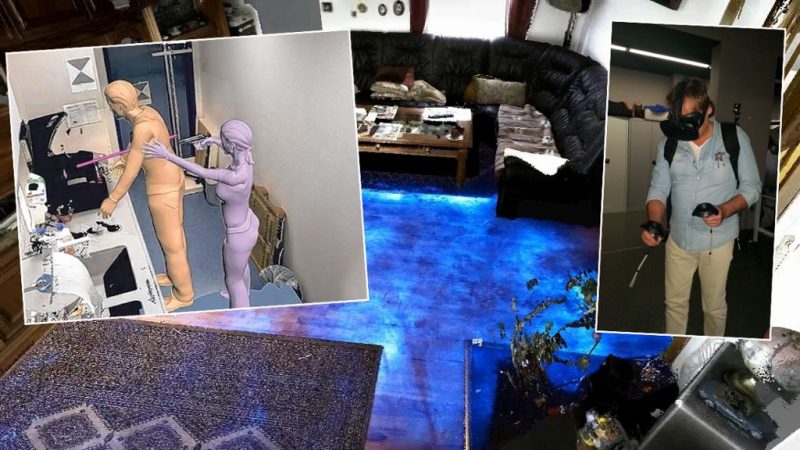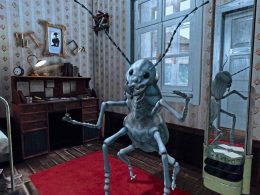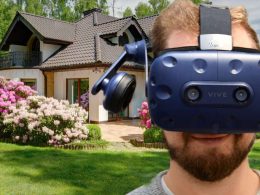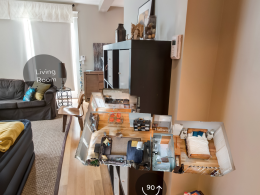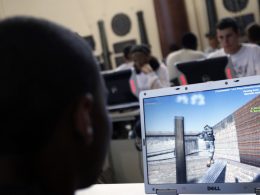To solve criminal cases, the police reconstruct crime scenes on the computer - in 3D. What sounds like science fiction actually helps with murder investigations.
You are immersed in a scene that could not be any worse. The footage shows brutal murders, the victims of the crimes, the crime scenes - all in razor-sharp images, with all the horrific details. Everything is three-dimensional and as vivid as if you were standing right in the centre of the crime, explains journalist Ralph Hub of the Abendzeitung München.
In the centre of the crime scene
"I'm in the kitchen of an attic flat. A few cupboards, a table, two chairs, a microwave, a jar of Nutella on a shelf. A bizarre contrast to this is the floor, which is completely smeared with blood. The traces reach up to the ceiling. I involuntarily hold my breath as I carefully move around the room. A shoe lies on the floor. With the markers in my hands, I can grasp it, look at it from all sides - as if I'm actually holding it in my hands," he says, obviously impressed, as he had just been standing in an almost empty room in a laboratory of the State Office of Criminal Investigation.
Everything is scanned within a few minutes
Everything at the crime scene has been recreated down to the last detail. Nothing has escaped the scanners. On average, only three to four scans are needed to completely capture a room. This often only takes a few minutes. The devices can even be used at night and in complete darkness. As was the case after the rampage in July 2016, when an 18-year-old shot nine people at the Olympia shopping centre and then took his own life.
OEZ rampage 2016: 3D reconstruction experts arrive on the scene
The 3D reconstruction experts arrived that very night and began their work. It took 15 hours to capture every single crime scene.
The LKA experts were also on site after the train accident near Bad Aibling in February 2016. They scanned the scene of the accident from a helicopter. The findings played an important role in reconstructing the accident during the trial of the train dispatcher at the time, who was sentenced to three and a half years in prison. The 3D technology also helped in the war crimes trial against Reinhold Hanning, a guard at the Auschwitz-Birkenau extermination camp. The LKA experts reconstructed the death camp using old photos. Ralf Breker: "This is reality that we were able to bring into the courtroom."
Days to weeks for reconstruction
The computers in the LKA laboratory convert the recorded data into three-dimensional images. This can take days, sometimes even weeks, to complete a full crime scene reconstruction. "The images will still be available in 100 years' time," predicts Ralf Breker, head of 3D reconstruction at the State Criminal Police Office.
Bringing the crime scene into the courtroom
The data can be called up on a normal laptop, tablet or mobile phone. The entire course of the offence can be reconstructed. The statements made by witnesses or a defendant can be scrutinised down to the last detail. "Judges, public prosecutors, defence lawyers - they can all get an impression as if they were at the scene of the crime themselves at that moment," emphasises Ralf Breker.
VR can be used until the autopsy
The scanners can not only reconstruct the scene of a crime. They can also preserve the victims forever - their bodies, their injuries, simply everything.
Even virtual autopsies are now possible. This involves moving through the body of the deceased. For example, it is possible to move muscle tissue and organs aside, to follow the stab channel to the exact point where the blade hit the heart. Everything can be created in the 3D printer. Faces, injuries, body parts, even a complete corpse could be created in the 3D printer, long after the deceased has been buried.
Sounds a bit like science fiction, but it is probably already reality.
Source: Abendzeitung Munich





